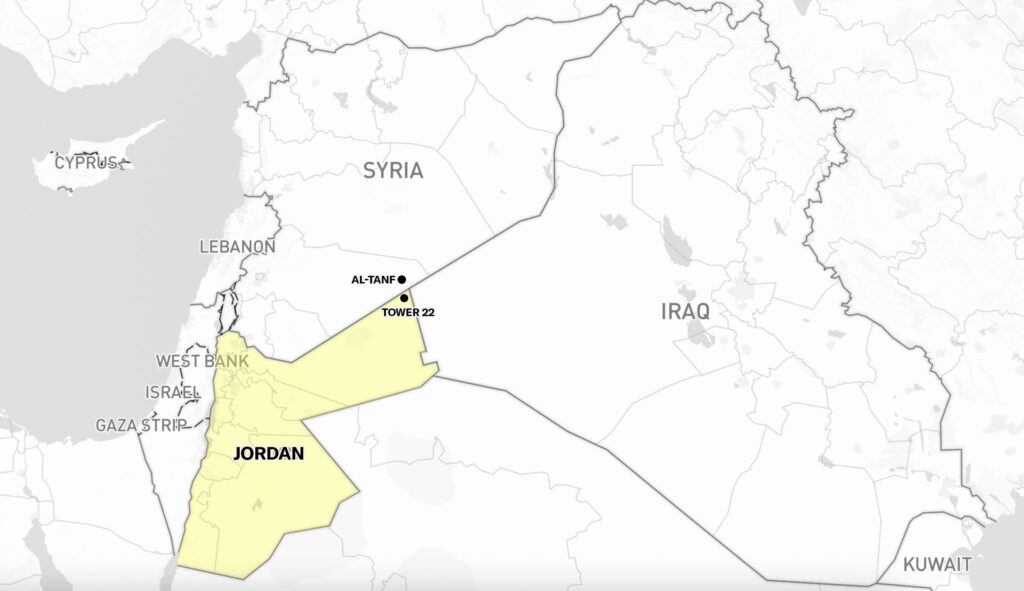President Joe Biden is facing pressure to respond to this weekend’s attack on a U.S. military base in Jordan that left three U.S. troops dead and more than 40 injured.
Iranian-backed militias have carried out approximately 165 attacks against U.S. forces stationed in Iraq, Syria, and now Jordan since mid-October, but this was the first time U.S. troops were killed in one of them.
The president said on Sunday, “We will hold all those responsible to account at a time and in a manner [of] our choosing,” and he attributed the attack to “Iran-backed militant groups operating in Syria and Iraq.”
Given the escalation, some politicians and retired military officials have called for the U.S. to respond more forcefully to this attack as opposed to their previous responses, which mainly consisted of targeting their facilities.

“Our response has to be unambiguous in assigning responsibility for this attack to the Iranians. That doesn’t necessarily mean we need to strike in Iran, but wherever we choose to militarily strike has to be something of value to Iran,” former U.S. Central Command head Gen. Joseph Votel told the Washington Examiner. “It has to be important. It has to be significant.”
The U.S. has carried out a series of strikes against the militias’ facilities in Iraq and Syria, though infrequently compared to the number of attacks against its bases: 66 occurred in Iraq, 98 in Syria, and this weekend’s deadly strike was the first one in Jordan, according to deputy Pentagon spokeswoman Sabrina Singh.
She described this weekend’s strike at the base known as Tower 22 as “certainly escalatory,” given the loss of life even though the militia’s intent with this strike was the same as the other roughly 160 attacks against U.S. forces in the region. Despite that, U.S. officials reiterated on Monday that the U.S. does not want to go to war with Iran.
Sgt. William Jerome Rivers, 46, of Carrollton, Georgia; Spc. Kennedy Ladon Sanders, 24, of Waycross, Georgia; and Spc. Breonna Alexsondria Moffett, 23, of Savannah, Georgia, were killed in the strike. More than 40 others were injured, a total that’s expected to increase, while eight of them had to be evacuated for treatment.
Retired Adm. James Stavridis, a former Navy admiral and now a Bloomberg columnist, wrote that the Department of Defense should develop “a full campaign plan with 5-7 days of continuous strikes abasing proxy targets in Syria and Yemen” and added that as those strikes unfold, “the Pentagon should generate detailed strike plans to go after Iranian targets themselves.”
House Foreign Affairs Committee Chairman Michael McCaul (R-TX) blamed the Biden administration for not doing enough to deter Iran from activating its “axis of resistance,” or its group of autonomous militant groups throughout the Middle East, which are now carrying out attacks against U.S. interests in the region.
CLICK HERE TO READ MORE FROM THE WASHINGTON EXAMINER
“I think they need to have a very decisive strong act of deterrence against Iran, and they could do that by hitting [the] IRGC in Iraq and Syria and in Yemen to show them that we’re not going to allow them to get away with this. I think they fear our military, but it’s the will of the president under question right now by Iran,” he told the Washington Examiner. “Iran is testing us, and, currently, I think the Biden administration is failing that test.”
He didn’t specifically call for striking within Iran, like some of his colleagues, though he said it shouldn’t be taken off the table.
